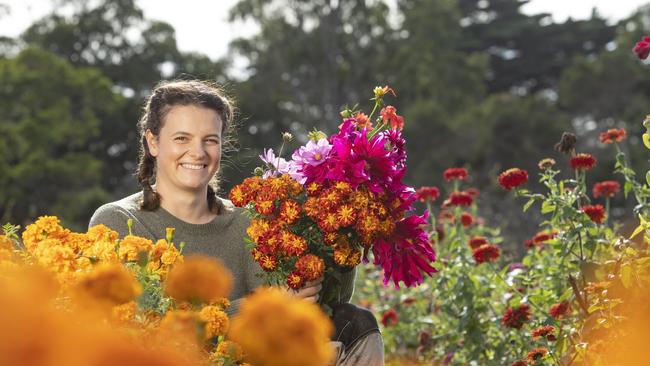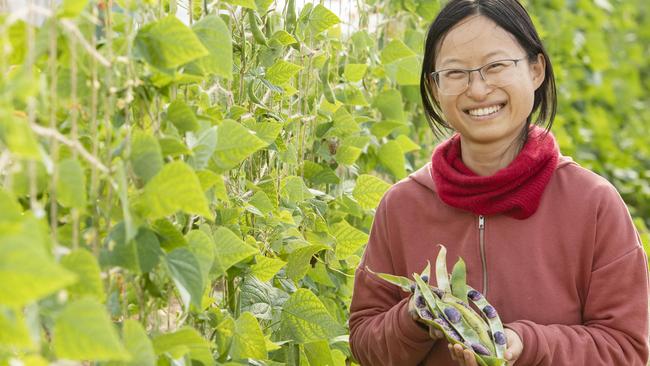How to be a farmer: Meet Torello Farm’s first-generation growers
Want to be a farmer but don’t have any land? A new initiative is giving young people a chance to learn how to farm without it.
In her previous work as a florist, Mornington’s Ally Cox would come home with hands peeling and sore after handling chemically-treated imported flowers for hours.
It was enough pain and frustration to make her question her role in the agriculture supply chain, and she decided to turn her hand to growing sustainable produce of her own.
Ms Cox is one of four young farmers with no prior agricultural experience learning the ropes of farming, thanks to an initiative run on the Mornington Peninsula.

The Gateway to Small Scale Farming training pilot program works in conjunction with the Mornington Peninsula Shire Council, Torello Farm at Dromana, and Agriculture Victoria, and works to train young people in growing, harvesting, and selling produce.
For Ms Cox, the opportunity to engage not only with producers in the know, but also their consumers, has been too good to miss.
“It’s been a really awesome opportunity to step into farming when a lot of people don’t know where to start, and to give an array of different types of farming and try different areas and see if that intrigues you,” Ms Cox said.
“I came to it quite open, and I just wanted to see where my interest lay. Even though I had a floristry background, growing is different.”
Future farmer intern Siyao Zhang said she was motivated to become a farmer as a way to channel her “climate anxiety”.
“I used to be involved with smaller climate protesting, it made me feel very powerless and angry,” Ms Zhang said.
“I found that farming was a way I could put my energy into healing the land and do something good for human beings.”

“I like this community … we come together, work together, and I found that very helpful for my mental health.”
Torello Farm operator Sophie O’Neil said the program connected people who might not necessarily come from a farming background, and “who certainly don’t have access to land” with the chance to learn how to farm.

Ms O’Neil said she’s noticed a “groundswell” of young people with environment in mind and a passion for growing food, but dismissed a career in agriculture “because they don’t own land.”
“I think the notion is a farmer is often the son or a daughter of a farmer. The pathway for most is generational,” she said.
“People can be really good at growing stuff, but might not know how to sell it. This is about seeing the whole picture.”
More Coverage






